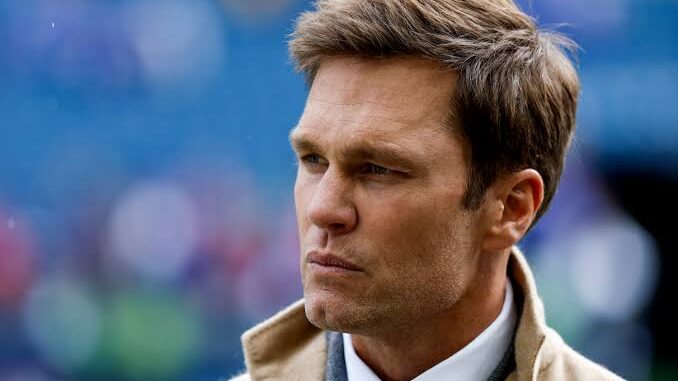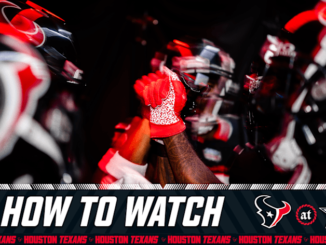
**Title: NFL Explains Why Tom Brady Won’t Be Punished After Criticizing NFL and Its Referees
In the often-intense landscape of professional sports, players and coaches sometimes speak openly about the officials and the governing bodies that regulate them. However, not every statement goes unnoticed or unpunished, particularly when it involves criticism of league policies or officials. Recently, NFL icon Tom Brady voiced strong opinions on the league and its referees, sparking debates across sports media. Surprisingly, the NFL announced that Brady would not face any disciplinary action for his comments. This decision has ignited discussions among fans, players, and analysts, leading many to wonder why the NFL chose to take this path, and what it signifies about the league’s evolving relationship with its players.
### Tom Brady’s Critique of the NFL
During a podcast interview, Brady expressed dissatisfaction with the quality of officiating in today’s NFL. As one of the most celebrated players in league history, with seven Super Bowl rings and countless records, Brady’s perspective carries significant weight. His comments questioned the inconsistency in officiating, which he suggested negatively impacts the quality and integrity of the game. While he refrained from calling out individual referees, Brady’s pointed critique made headlines, with his words resonating among fans and current players alike.
Brady also questioned certain league policies, including some implemented to protect players. Ironically, these safety rules were introduced in part due to concerns over injuries to star quarterbacks like Brady himself. Yet, he argued that the league’s focus on protecting offensive players has led to a decline in competitiveness. “Defensive players don’t stand a chance,” he said, citing the frequent penalty calls that, in his view, favor offenses and make it harder for defensive players to excel without being penalized.
### NFL’s Response and Decision to Avoid Punishment
When Brady’s comments went public, many expected the NFL to respond swiftly, given the league’s history of disciplining players who criticize officiating or league policies. The NFL has fined or reprimanded various players and coaches in the past for much less severe comments about officiating, often taking a zero-tolerance stance to maintain the league’s reputation and avoid undermining the authority of its referees.
Yet, this time, the league took a different approach. An NFL spokesperson explained that Brady’s comments, while critical, did not violate the league’s conduct policies in a way that warranted punishment. The spokesperson noted that Brady’s critique did not contain inflammatory or offensive language, nor did he make direct accusations of bias or incompetence against any referee. Instead, the league saw his comments as “constructive criticism” that could potentially foster healthy discussions about the state of officiating.
### The NFL’s Double Standard?
While some fans and media members accept the NFL’s stance, others argue that this decision represents a double standard. In the past, players and coaches who voiced similar opinions were swiftly penalized. Critics believe that Brady’s high-profile status and his legacy as one of the most successful players in NFL history shielded him from consequences. After all, the league benefits from its association with Brady, who has been a household name and a significant draw for viewership over his 20-plus-year career.
The NFL has historically been selective with its disciplinary measures, and some analysts suggest that the decision to avoid punishing Brady reflects a broader reluctance to challenge marquee players. For instance, Brady’s appeal and popularity have made him a poster child for the NFL brand; penalizing him could be perceived as damaging to the league’s image, particularly at a time when Brady has retired and is now venturing into broadcasting and analysis.
### Potential Influence on League Policies
Brady’s comments, while critical, have sparked renewed interest in discussing the league’s officiating standards and rules protecting players. Given Brady’s substantial influence, the NFL might find itself in a position where his remarks catalyze actual change. Brady has spoken from personal experience as a player who has faced the game’s highest physical demands, and his insights could prompt the league to revisit its approach to penalties and enforcement.
The NFL’s statement indicated that it values feedback from former players, especially those with a legacy as impactful as Brady’s. His concerns about the disparity between offensive and defensive play reflect an ongoing debate within the league. The modern NFL has often emphasized high-scoring games to appeal to fans, sometimes at the expense of allowing defenses the same level of latitude as offensive players. If Brady’s critique leads to a reevaluation of this approach, his comments could hold long-term implications for how the game is officiated.
### Brady’s Position as an Analyst and Potential NFL Influence
Now that Brady has transitioned from player to media personality, he operates in a unique space where he can comment on the game’s structure without the direct constraints placed on active players. As a former player with insider knowledge and a massive following, Brady’s opinions carry weight. With his new role, he has the potential to shape public perception and possibly influence league policy more effectively than during his playing career.
His stance has opened doors for other players, current and former, to share similar thoughts without fear of severe retribution. As Brady shifts to a media role, the NFL may be wary of how penalizing him could impact his comments in the future, potentially leading to more vocal criticisms. In a way, Brady’s new role may give him more freedom to speak his mind, indirectly encouraging the league to tolerate criticism it might not have accepted before.
The Future of Player Criticism in the NFL
The NFL’s decision not to penalize Brady could signal a new era where players and analysts are afforded more latitude in expressing critical views on officiating and league policies. This shift could improve transparency, allowing for constructive feedback that could help improve the game. However, if this flexibility is limited to players



Be the first to comment